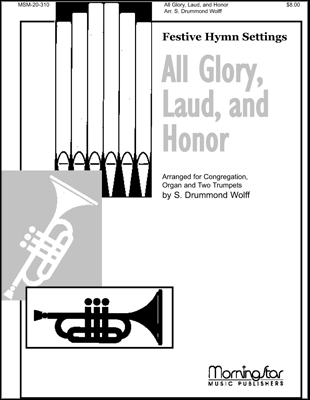- |
User Links
Wie soll ich Dich empfangen?

Wie soll ich Dich empfangen?
Author: Paul GerhardtTune: ST. THEODULPH (Teschner)
Published in 121 hymnals
Printable scores: PDF, Noteworthy ComposerAudio files: MIDI
Representative Text
1 Wie soll ich dich empfangen,
und wie begegn' ich dir,
O aller Welt Verlangen,
o meiner Seelen Zier?
O Jesu, Jesu, setze
mir selbst die Fackel bei,
damit, was dich ergötze,
mir kund und wissend sei.
2 Dein Zion streut dir Palmen
und grüne Zweige hin,
und ich will dir in Psalmen
ermuntern meinen Sinn:
mein Herze soll dir grünen
in stetem Lob und Preis
und deinem Namen dienen,
so gut ich kann und weiß.
3 Was hast du unterlassen
zu meiner Trost und Freud',
als Leib und Seele saßen
in ihrem größten Leid?
Als mir das Reich genommen,
da Fried' und Freude lacht,
da bist du, mein Heil, kommen
und hast mich froh gemacht.
5 Nichts, nichts hat dich getrieben
zu mir vom Himmelszelt,
als dein geliebte Lieben,
damit du alle Welt
in ihren tausend Plagen
und großen Jammerlast,
die kein Mund aus kann sagen,
so fest umfangen hast.
6 Das schreib dir in dein Herze,
du hochbetrübtes Heer,
bei denen Gram und Schmerze
sich häuft je mehr und mehr;
Seid unverzagt! Ihr habet
die Hilfe vor dir Tür:
der eure Herzen labet
und tröstet, steht allhier.
10 Er kommt zum Weltgerichte,
zum Fluch dem, der ihm flucht;
mit Gnad' und süßem Lichte
dem, der ihn liebt und sucht.
Ach komm, ach komm, o Sonne.
und hol' uns allzumal
zum ew'gen Licht und Wonne
in deinen Freudensaal!
Source: Kleines Gesang- und Gebetbuch #11
Author: Paul Gerhardt
 Paul Gerhardt (b. Gräfenheinichen, Saxony, Germany, 1607; d. Lubben, Germany, 1676), famous author of Lutheran evangelical hymns, studied theology and hymnody at the University of Wittenberg and then was a tutor in Berlin, where he became friends with Johann Crüger. He served the Lutheran parish of Mittenwalde near Berlin (1651-1657) and the great St. Nicholas' Church in Berlin (1657-1666). Friederich William, the Calvinist elector, had issued an edict that forbade the various Protestant groups to fight each other. Although Gerhardt did not want strife between the churches, he refused to comply with the edict because he thought it opposed the Lutheran "Formula of Concord," which condemned some Calvinist doctrines. Consequently, he was r… Go to person page >
Paul Gerhardt (b. Gräfenheinichen, Saxony, Germany, 1607; d. Lubben, Germany, 1676), famous author of Lutheran evangelical hymns, studied theology and hymnody at the University of Wittenberg and then was a tutor in Berlin, where he became friends with Johann Crüger. He served the Lutheran parish of Mittenwalde near Berlin (1651-1657) and the great St. Nicholas' Church in Berlin (1657-1666). Friederich William, the Calvinist elector, had issued an edict that forbade the various Protestant groups to fight each other. Although Gerhardt did not want strife between the churches, he refused to comply with the edict because he thought it opposed the Lutheran "Formula of Concord," which condemned some Calvinist doctrines. Consequently, he was r… Go to person page >Text Information
| First Line: | Wie soll ich Dich empfangen? |
| Author: | Paul Gerhardt |
| Language: | German |
| Notes: | Polish translation: See "Jak mam powitać Ciebie"; Kiswahili translation: See "Nikulakije vema"; English translation: See "O how shall I receive Thee" by Arthur T. Russell |
| Copyright: | Public Domain |
French
German
- Ausgewaehlte Psalmen und Lieder fuer kirchlichen und haeuslichen Gebrauch #d375
- Das Geistliche Saitenspiel: oder, Eine Sammlung auserlesener, erbaulicher, geistreicher Lieder zum Gebrauch aller Gottliebenden Seelen, insonderheit für dei Gemeinen der Evangelischen... (1st Aufl.) #35
- Das Gemeinschaftliche Gesangbuch: zum gottesdienstlichen Gebrauch der Lutherischen und Reformirten Gemeinden in Nord-America. (1st.. Aufl) #58
- Das neu eingerichtete Gesang-buch: bestehend aus einer Sammlung der besten Lieder, zum gebrauch des öffentlichen Deutschen Gottesdienstes', und andern Uebungen zur Gottseligkeit... (2nd aufl.) #9
- Das neue Gemeinschaftliche Gesangbuch, zum ... der Lutherischen und Reformirten Gemeinden in Nord-Amerika ... neuen Anhg. #ad583
- Das Neue Gesangbuch, zum oeffentlichen Gottesdienste, und zur haeuslichen Andacht. l. Aufl. #d124
- Das neue und verbesserte Gesangbuch, worinnen die Psalmen Davids samt iner Sammlung alter und neuer Geistreicher Lieder, sowohl für privat und Hausandachten, als auch für den öffentlichen..(5th Aufl.) #99
- Davidisches Psalter-Spiel der Kinder Zions #d1043
- Deutsche Gesangbuch fuer die Evangelisch-Lutherische Kirche in den Vereinigten Staaten Herausgegeben mit kirchlicher Genehmigung #d633
- Deutsches Gesang- und Choralbuch: eine Auswahl geistlicher Lieder ... Neue, verbesserte und verhmehrte Aufl. #a77 10 shown out of 107
Notes
Wie soil ich dich empfangen? P. Gerhardt. [Advent.] First published in the Crüger-Runge Gesang-Buch, 1653, No. 77, in 10 stanzaa of 8 lines, reprinted in Wackernagel's edition of Gerhardt's Geistliche Lieder, No. 3, Bachmann's edition, No. 22, and the Unverfälschter Liedersegen, 1851, No. 21. It is founded on St. Matt. xxi. 1-9, the Gospel for the first Sunday in Advent. The allusions in stanzas vi.-ix. would suggest that it was written during the Thirty Years' War. It is one of Gerhardt's finest productions, and is probably the best German Advent hymn. Translated as:—
1. How shall I meet my Saviour. In full, by J. C. Jacobi, in his Psalmodia Germanica, 1722, p. 3 (1732, p. 3, slightly altered). Included in the Moravian Hymn Book, 1754, and repeated, altered, in later editions (1886, No. 33). Varying centos under the original first line, but from the Moravian text, are found in Montgomery's Christian Psalmist, 1825, Dr. Pagenstecher's Collection, 1864, Latrobe's Psalms & Hymns, 1841, and Bishop Kyle's Collection, 1860. Other forms are (see also No. 3):—
(1) We go to meet Thee, Saviour (stanza i. alt.), in Reid's Praise Book, 1872, mainly from the Moravian Hymn Book, 1801.
(2) Love caused Thine Incarnation (stanza v. alt.), in Walker's Collection, 1855, and Snepp's Songs of Grace & Glory, 1872, from the Moravian Hymn Book, 1801.
2. Oh, how shall I receive Thee. A good translated of stanzas i., ii., vii., viii., x., by A. T. Russell, as No. 36 in his Psalms & Hymns, 1851. Repeated in Kennedy, 1863, and the People's Hymnal, 1867; and abridged in J. L. Porter's Collection, 1876, Hymns & Songs of Praise, N. Y., 1874, Laudes Domini, N. Y., 1884, &c.
3. Oh! how shall I receive Thee. This is No. 5 in the edition, 1857, of Mercer's Church Psalm & Hymn Book. Stanzas i., ii., are based on Russell, and stanzas iii.-v. (representing iv.-vi.), are based on Jacobi, as altered in the Moravian Hymn Book, 1801. Slightly altered in Mercer, 1859, and thence in the Pennsylvania Lutheran Church Book, 1868; and (omitting translated of stanza iv.) in Mercer's Oxford edition, 1864.
4. Ah I Lord, how shall I meet Thee. A translated of stanzas i., ii., v., vi., viii., x., by Miss Winkworth, in her Chorale Book for England, 1863, No. 21.
5. Say with what salutations. In full, by J. Kelly, in his P. Gerhardt's Spiritual Songs, 1867, p. 10; repeated, abridged, in the Ohio Lutheran Hymnal, 1880.
Other translations are: (1) "Lord, how shall I be meeting," by Dr. J. W. Alexander, in Schaff’s Kirchenfreund, 1850, p. 176, and in his Christ in Song, 1869, p. 20, and his own Breaking Crucible, 1861, p. 11. (2) “How shall I meet Thee? How my heart," by Miss Winkmorth, 1855, p. 7. (3) "How shall I come to meet Thee," by Miss Manington, 1863, p. 65. (4) "Lord, how shall I receive Thee," by B. Massie, 1864, p. 93. [Rev. James Mearns, M.A.]
--John Julian, Dictionary of Hymnology (1907)
Tune
ST. THEODULPH (Teschner)Now often named ST. THEODULPH because of its association with this text, the tune is also known, especially in organ literature, as VALET WILL ICH DIR GEBEN. It was composed by Melchior Teschner (b. Fraustadt [now Wschowa, Poland], Silesia, 1584; d. Oberpritschen, near Fraustadt, 1635) for "Valet wi…


 My Starred Hymns
My Starred Hymns







